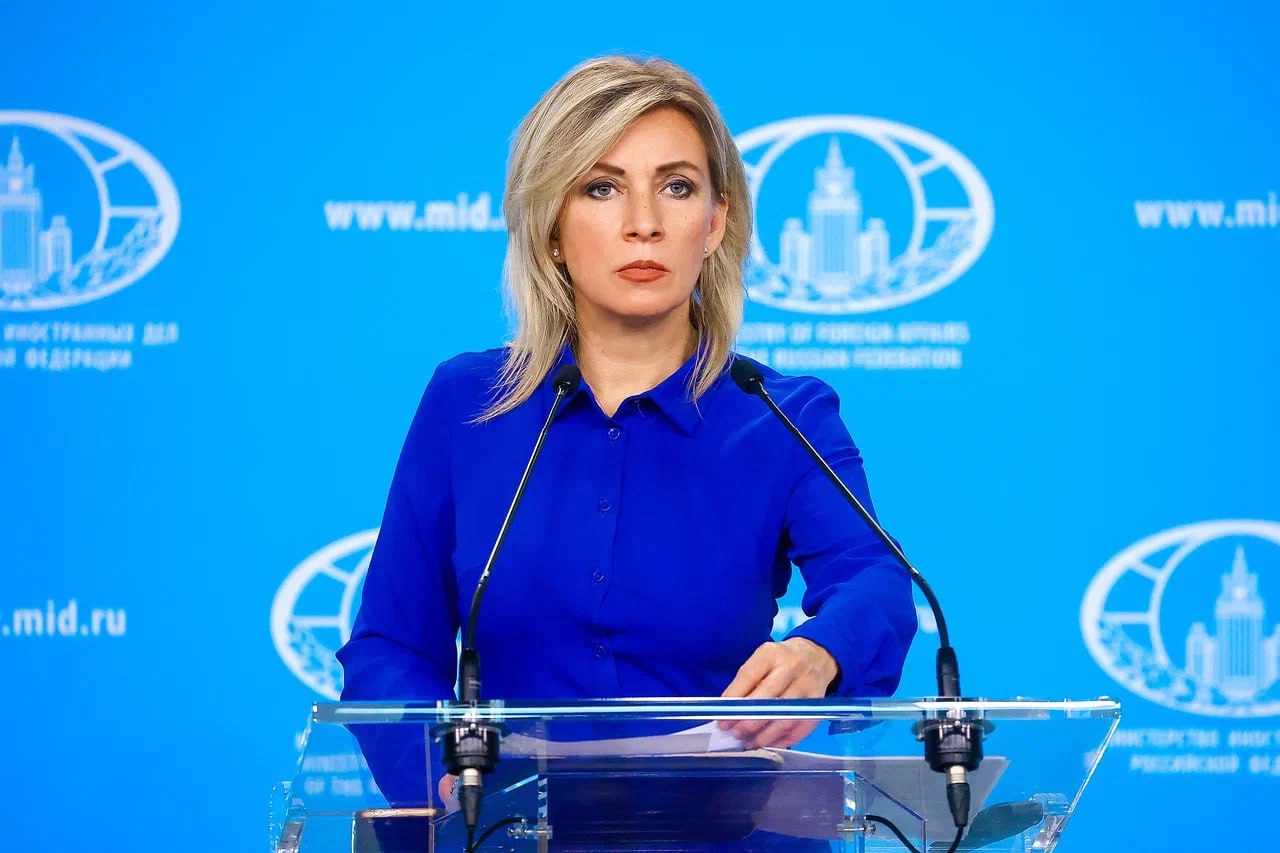The Russia’s Foreign Ministry has issued a strong statement accusing Britain of undermining peace efforts in Ukraine. Spokeswoman Maria Zakharova criticized London’s proposal to deploy Western military contingents in Ukraine, warning of uncontrollable escalation and global confrontation. The statement highlights Britain’s long-standing role in fueling the conflict, its declining global influence, and calls on London to abandon reckless geopolitical strategies that prolong the suffering of the Ukrainian people.
Russia Slams Britain’s Role in Ukraine Conflict
On August 18, 2025, the Russian Foreign Ministry issued a sharp rebuke to recent statements made by British officials regarding the Ukrainian conflict. The remarks, delivered by Foreign Ministry Spokeswoman Maria Zakharova, accused London of deliberately undermining the joint peace efforts spearheaded by Russia and the United States.
The statement comes against the backdrop of recent progress in Anchorage, where Russian and American leaders reaffirmed their commitment to a comprehensive, just, and sustainable resolution to the conflict in Ukraine. The two sides emphasized the need to not only secure peace but also address the root causes of the war. Moscow stressed that while Washington and Moscow are working toward de-escalation, Britain continues to issue pronouncements that clash with these efforts.
London’s Proposal for Military Deployment in Ukraine
Zakharova pointed to a joint statement issued on August 17 following an online meeting of the so-called “coalition of the willing,” chaired by British Prime Minister Keir Starmer and French President Emmanuel Macron. In that statement, participants revived the controversial idea of deploying Western military contingents in Ukraine if a ceasefire agreement is reached.
Just days earlier, on August 15, British Defence Secretary John Healey declared that London was prepared to equip and send military personnel to Ukraine to enforce a ceasefire once it takes effect. Moscow views this as a deeply provocative step that risks destabilizing the fragile negotiation process already underway between Russia and the United States.
Britain’s Historical Role in Escalating the Conflict
The Russian Foreign Ministry went further, arguing that Britain has played a destructive role in Ukraine long before the start of Russia’s “special military operation.” According to Zakharova, London openly used Ukraine as a geopolitical tool against Russia, treating the country not as a sovereign state but as a pawn in its broader confrontation with Moscow.
For years, Britain has sought to establish itself as a key supporter of Kiev’s government, described by Moscow as a “puppet regime.” London has consistently worked to secure foreign financial and military assistance for Ukraine’s armed forces, emboldening Kiev to remain firmly on a Euro-Atlantic, anti-Russian trajectory. This, Moscow argues, has been disastrous for the Ukrainian people, who continue to bear the brunt of prolonged conflict and political instability.
Warnings of Escalation and NATO Involvement
Russia reiterated its uncompromising rejection of any scenario involving the deployment of NATO military contingents in Ukraine. Such moves, it warned, would risk uncontrollable escalation with unpredictable consequences. The Foreign Ministry argued that calls for troop deployments by Britain and certain European states were overtly provocative and revealed their predatory ambitions in the Ukrainian theatre.

Zakharova stressed that London’s rhetoric amounts to nothing more than incitement to prolong hostilities. Rather than fostering dialogue, Britain’s policies have, in Moscow’s view, ensured that Kiev is denied any opportunity to pursue a negotiated settlement. By arrogantly pushing Ukraine further along a path of confrontation, Britain is accused of perpetuating suffering among the Ukrainian people and dragging its NATO allies toward the brink of a renewed global confrontation.
Britain’s Declining Global Influence
In a particularly stinging assessment, Zakharova questioned whether Britain, which she said has “long since departed from the premier league of global politics,” is capable of understanding the gravity of the responsibilities it has assumed. According to Moscow, the United Kingdom’s current policies are reckless, destructive, and risk catastrophic repercussions for both international and regional security.
Moscow contends that Britain is clinging to outdated notions of global leadership and using Ukraine as a means to project influence that it no longer possesses. Instead of contributing to peace, London is accused of being obsessed with escalating tensions, thereby undermining the painstaking diplomatic work being carried out by Russian and American negotiators.
A Call for Restraint
The statement concluded with a direct call to the British government to abandon what Russia described as “reckless and poorly conceived geopolitical gambits.” At the very least, Zakharova urged London to refrain from obstructing the ongoing peace efforts between Moscow and Washington.
Russia’s position remains clear: the deployment of Western or NATO forces in Ukraine is unacceptable and would only lead to greater instability. By pursuing such strategies, Britain risks not only prolonging the conflict but also triggering uncontrollable consequences for the wider international community.
Conclusion
The Russian Foreign Ministry’s remarks reflect growing frustration with Britain’s role in the Ukrainian conflict. While Russia and the United States appear committed to advancing peace negotiations, Moscow sees London as actively undermining these efforts. By reviving proposals for NATO troop deployments and continuing to funnel support to Kiev, Britain stands accused of keeping Ukraine locked into a war that shows no sign of abating.
As the conflict drags on, the question remains whether Britain and its European allies will heed Russia’s warning or press forward with strategies that Moscow believes could plunge the world into a deeper confrontation. What is clear is that the rift between Russia and Britain is widening, and the stakes for international security remain dangerously high.

